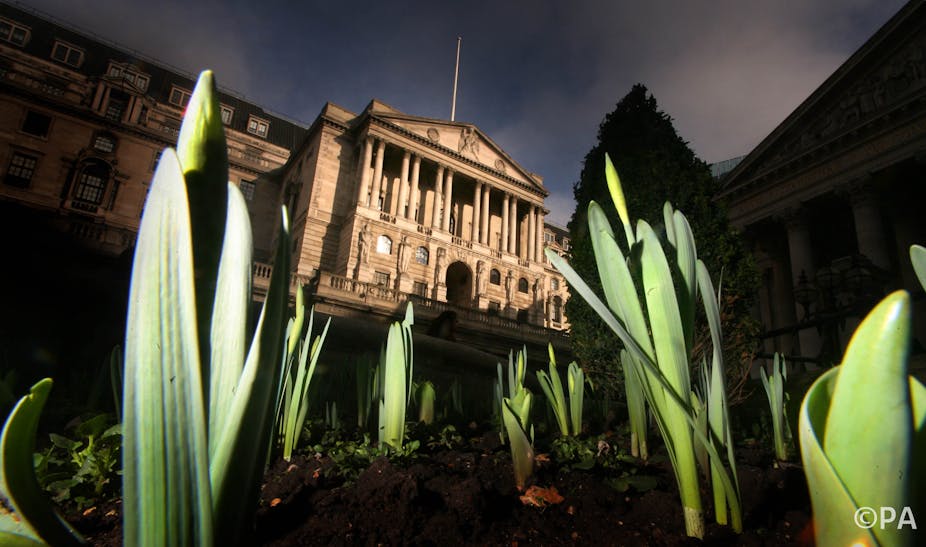As Conservatives head to Manchester for their annual party conference this weekend, it seems a very long time since David Cameron, then newly-elected party leader, urged the electorate to “Vote Blue, Go Green”, and made a high-profile visit to the Norwegian Arctic to inspect the effects of climate change for himself. Despite his insistence that the Conservative-Liberal Democrat coalition should aim to be the “greenest government ever”, it seems that the experience of high office has transformed Cameron from a husky hugger to a fracking fanatic, giving greens of all political persuasions a bad case of the blues.
Back in 2006, an environmentally-friendly image had various uses for Cameron. It offered him an issue with which to detoxify the Conservative brand with a new, more caring Conservative image. Among the various modernising messages he could have chosen, it was least likely to upset his opponents since even Margaret Thatcher had evinced concern about the environment on occasion. He could also call Edmund Burke, the 18th century founder of modern conservatism, as a supportive witness, since Burke had written of the duty owed by the living to future generations - a fine ideological directive for a environmental stance.
To the cynics, Cameron’s “green phase” was never anything more than relatively costless political posturing. After all, the environment was of low importance to voters generally, let alone Conservative supporters, when Cameron became leader. Once Cameron had milked it of its photo-opportunity potential – and encountered embarrassing publicity when he was shown cycling to work with a gas-guzzling car following close behind him – he was only too ready to relegate the environment from his ‘to do’ list to his pending tray.
There is another explanation for Cameron’s approach to the environment, which might be kinder to the Prime Minister but is no less depressing for environmentalists. When Cameron associated himself with green politics, the economy seemed sound. As the banking crisis unfolded from 2007, even a genuine believer could only expect that most voters would start to see environmental protection as a luxury which the country could barely afford.
This consideration seems to have weighed particularly heavily with Cameron’s friend and adviser, George Osborne. Osborne may or may not be a climate-change denier (like his Tory predecessor as Chancellor, Nigel Lawson). But, anxious to generate economic growth before the next election regardless of long term cost, Osborne is well aware that true blue Daily Mail and Daily Telegraph-reading Conservative supporters tend to think that climate change is nothing to worry about.
Against this background, it’s reasonable to assume the prime minister’s concern about the environment was always sincere, but has been put in the shade since 2006 by electoral calculations. At the next election, the state of the economy will be the most influential factor. Prioritising environmental protection over economic growth in the short term – by increasing petrol taxes, or instigating a massive wind farm building programme in Tory heartlands – would alienate core Conservative supporters who have many other reasons to feel fed up. So it is not likely to happen.
Despite Burke’s eloquence on the subject, Cameron’s insistence that conservatives are natural custodians of the environment has never cut much ice among Conservative Party activists. But in the context of a coalition with the Liberal Democrats, Conservative MPs with green leanings might have expected to be able to exercise some leverage.
In June, former Cabinet minister Tim Yeo faced off against the government with an amendment that would have written a drastic reduction of carbon-generated power by 2030 into the Energy Bill. Only eight Conservative MPs, including long-standing environmental activist Zac Goldsmith, and 16 Lib Dem MPs voted for the amendment, which was defeated quite comfortably despite this rebellion.
The vote was a clear indication that the most committed green Tory MPs were losing patience with the government, and were preparing to flex their muscles. Unfortunately for them, the scale of the rebellion suggested that they were not particularly muscular.
However, green Conservatives do at least enjoy a prominent parliamentary platform. Several of the rebels (including Goldsmith) are members of the Commons’ Environmental Audit Committee. In the past this has been prepared to issue critical reports, and more can be expected from the same quarter.
Nevertheless, experience shows that critical committee reports only force governments to take action when they attract sympathetic media coverage. The ingrained hostility of Conservative-supporting newspapers to the green case thus closes down this potential route to influence.
For environmentalists, the coalition’s record has been one of small steps in the right direction (like the establishment of the Green Bank), combined with prodigious backward strides of which fracking is only the latest example. Meanwhile Lib Dem ministers, including the increasingly-restive Ed Davey, have remained in office despite evidence that their concerns are being outweighed by short-term considerations.
For both coalition partners - and indeed for Labour, whose approach to the subject seems broadly similar - the environmental is likely to be an issue best avoided at the next election. The more it is mentioned, the more likely it is that those who take the plight of the environment seriously will decide that the only way to “Go Green” is to “Vote Green”.

